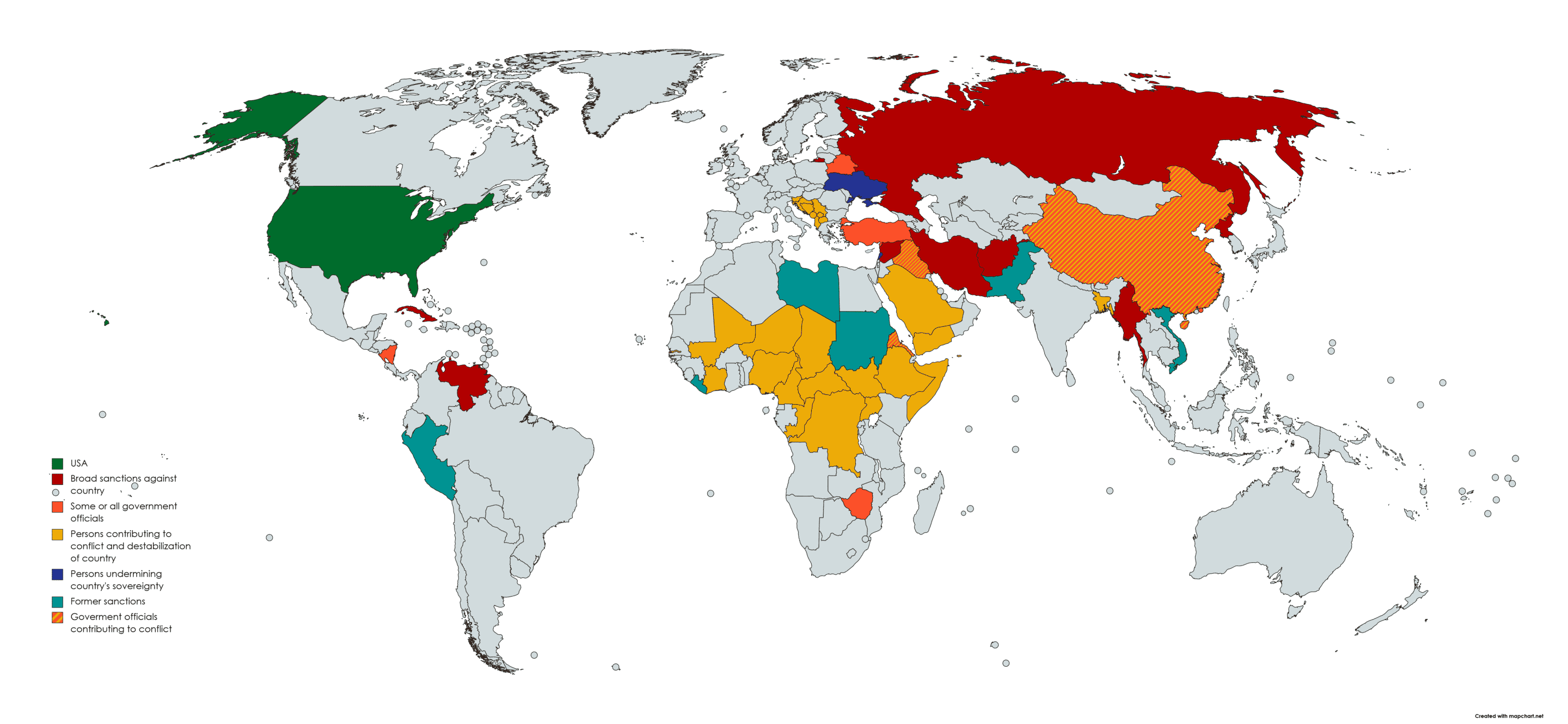American officials are meeting with their British counterparts this week to increase cooperation regarding sanctions enforcement against Moscow. The meeting comes as the White House is struggling to get its Gulf partners to comply with its economic war on Russia.
Andrea Gacki, director of the US Treasury’s Office of Foreign Assets Control, and Giles Thomson, director of the Office of Financial Sanctions Implementation at the UK Treasury, met on Monday, according to the Financial Times. The outlet received early access to a joint memo that said Washington and London agreed to take their collaboration on enforcing sanctions to the “next level.”
“We will identify opportunities to pool expertise, to think creatively about the challenges we face, to explore opportunities to align the way we implement sanctions, and to assist our stakeholders either through joint products or by providing guidance resulting from collaboration behind the scenes,” the joint statement said.
Sanctions have become a favorite tool of Washington and its allies to punish governments that do not comply with its dictates. The use of sanctions is up nearly 1000% over the past two decades. Currently, the White House has ‘maximum pressure’ sanctions on Russia, Iran, Venezuela, North Korea, Cuba and Syria. Those penalties target governments that the US would like to see overthrown, undermined or locked out of international markets. Under President Donald Trump, Washington started a trade war with China, mainly using tariffs.
However, sanctions have proven ineffective in producing regime change. Typically, economic wars have impoverished average citizens and empowered government institutions in target nations. While Havana has faced a multi-decade embargo, the Cuban people face severe poverty and the government of Fidel Castro remains firmly in power.
The US and its Western allies pledged to cripple the Russian economy after President Vladimir Putin ordered the invasion of Ukraine in February. So far, the sanctions have backfired. The Western economic war has caused food and energy prices to spike, especially in Europe, where there are growing fears citizens will be unable to heat their homes come winter. Concurrently, the Russian economy has strengthened with increasing oil prices.
The US and UK officials explained the initial target of the sanctions will be Russia, but added that, over time, the cooperation can be extended to other countries.
“Over time, we expect to realize the benefits of our collaboration not only in relation to the sanctions imposed in response to Russia’s invasion of Ukraine, but also across other common sanctions regimes,” the joint statement said, adding “our common values and combined role in the global financial system make our partnership incredibly potent.”
On Monday, London accused Tehran of providing Moscow with drones. Downing Street says it views the alleged arms transfers as a violation of the Iran nuclear deal. Washington exited the nuclear agreement in 2018 and placed sweeping sanctions on Iran, but the UK remained in the agreement. The UK, and other European countries, could impose sanctions on Iran if they determined it was violating the agreement.
Additionally, the Statement Department threatened secondary sanctions on Iran for exporting weapons. “Anyone doing business with Iran that could have any link to UAVs or ballistic missile developments or the flow of arms from Iran to Russia should be very careful and do their due diligence – the US will not hesitate to use sanctions or take actions against perpetrators,” the State Department spokesperson said.
Though Washington is seeking to increase cooperation with London to weaken Moscow, the White House is struggling to get its Arab partners on board with its sanctions regime. OPEC+, an organization that includes Saudi Arabia and the UAE, recently agreed to cut oil production by two million barrels a day, resisting pressure by the United States to delay the decision until after the upcoming midterm election.
The OPEC+ move is expected to increase oil prices. The White House has denounced the production cut as a pro-Russia decision.








